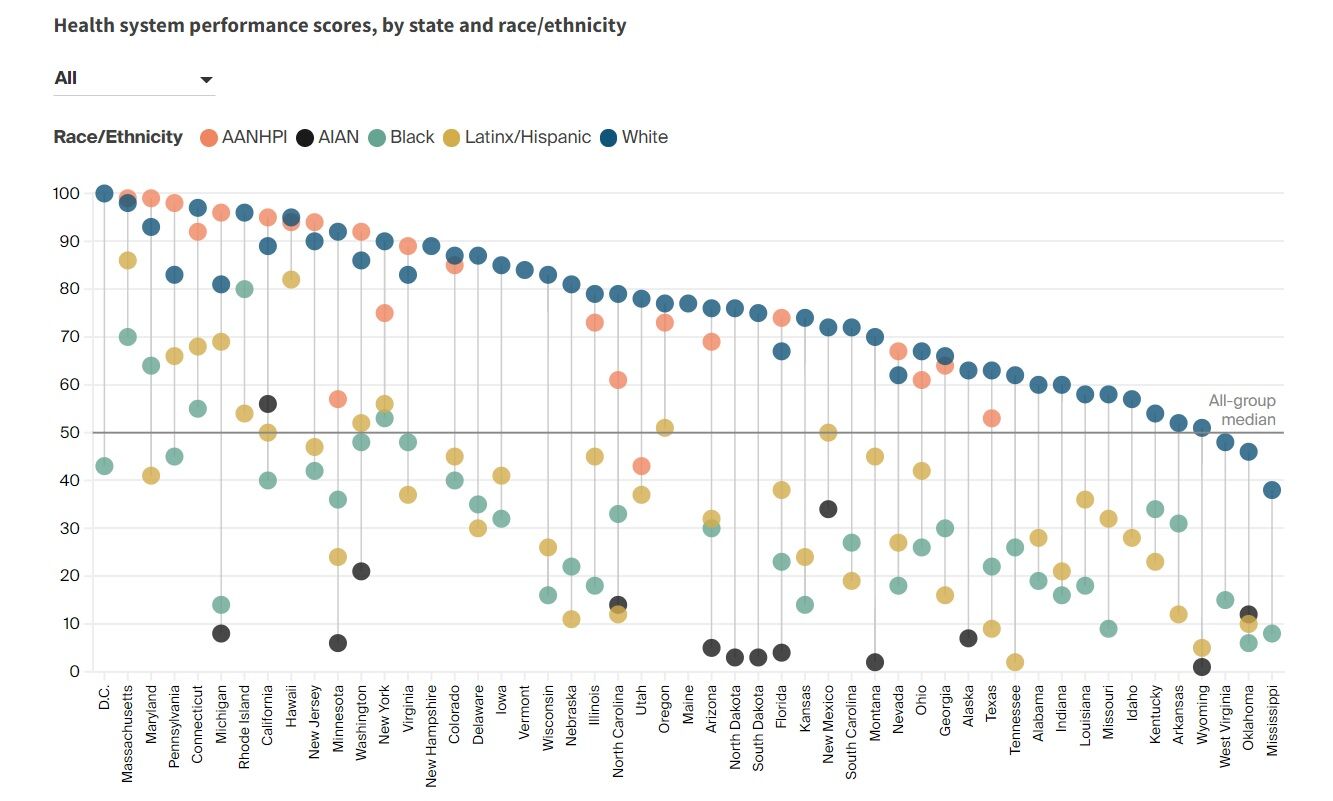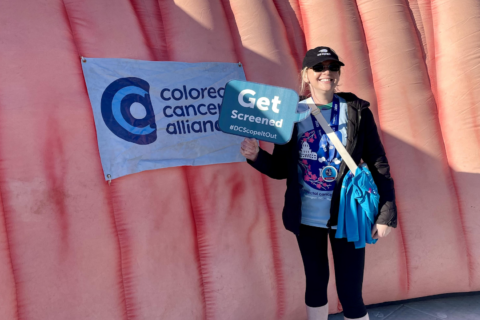Nearly every state in the U.S. has racial health care disparities, according to a new report.
That’s according to findings from a Commonwealth Fund report titled “Achieving Racial and Ethnic Equity in U.S. Health Care: A Scorecard of State Performance”
“We looked at that how well the health care system is working for Black, Latino, Asian, Native and white Americans in all 50 states,” said David C. Radley, one of the report’s authors. “And … we found that the system isn’t necessarily working the same for everyone. In particular, it’s not working for people of color.”
The report identified 24 indicators of health system performance, and then broke that down by state and by race and ethnicity. Indicators were categorized into three performance domains: 1) health outcomes, 2) health care access and 3) quality and use of health care services.

Per the above chart, there are significant differences in how health care systems perform when it comes to white patients and non-white patients.
The report also found that, in just about every state, Black people are more likely than white people to die early from preventable causes. Additionally, Black Americans and Native Americans are much more likely to die from diabetes-related complications, which are largely treatable with proper medication and monitoring. And Black women are more likely to be diagnosed with breast cancer later on, and even die from the disease, when compared to white women.
These trends are evident within local health care systems. Radley said that in the D.C.-Maryland-Virginia area, Black and brown people tended to have worse health outcomes, less access to care and often receive lower quality care compared to white people.
A few examples of the disparity Radley offered for Maryland and Virginia were “that deaths early in life from health care treatable conditions were nearly twice as high for Blacks as they were for whites. Black women are more likely than white women in those states to die from breast cancer. And so higher uninsured rates, particularly for Latinos, but also for Blacks, compared to white people.”
Multiple factors have led the health care disparity to be especially pronounced in Maryland, according to Radley. It’s from a combination of years of unequal access to health care, cases of discrimination at the point of service, cultural and language barriers preventing a smooth delivery of service and “a legacy of structural racism that’s perpetuated unequal opportunity for people of color, in every state in the country.”
Radley’s remedy to all this? Expand Medicaid, continue the outreach to make sure that people can get access to the services they’re eligible for and expand primary care systems to make sure that people receive care in their own communities and from providers that they can relate to.
WTOP’s Mark Lewis and Sandy Kozel contributed to this report.








